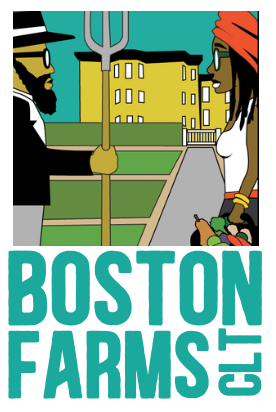
Frequently Asked Questions
Answering Your Most Pressing Concerns
Why are urban farms important?
Food is medicine, and everything related to how we produce that medicine is important. When food is produced locally, that raises the awareness of our neighbors to the vital importance of knowing where your food comes from and how it is grown. Local food production and consumption can lead to healthier individuals and that leads to healthier communities.
Farms benefit our communities in 4 unique ways:
Self-determination and access to land is one mechanism that returns power to the people. This Community Land Trust (CLT) model offers you the power over land transformed into farms. Engagement in this process gives the community a template to regain power over other parcels of land for other land uses, i.e., housing, commercial, mixed-use, etc.
Economically, farms create opportunities for food and agricultural businesses to launch and thrive. They offer opportunities for green business development (farming, food, plants, and medicine). They support local trades (i.e., plumbers, electricians, contractors, carpenters, mechanics, etc.). We strive to source local vendors.
Socially, farms can act as gathering places. They’re also spaces for learning and getting involved in growing. Farms can be a mechanism for food sovereignty and can create access to plant medicines. Additionally, they create safety and beauty in otherwise derelict spaces.
Environmentally, farms help mitigate climate change through the creation of buffers that aid against heat island effects. Farms also build nutrient-rich and healthy soils that sequesters atmospheric carbon. They regenerate the local ecology through storm water management and the creation of pollinator habitats.
How do farms benefit our community?
Boston Farms provides larger plots of land to community growers seeking to create an enterprise or business where food, plants, flowers, or medicine is produced and can be sold. Community garden plots are shared garden spaces where community members can rent a small plot of land to grow food for personal use.
How are the farms you build different from a community garden?
Farms and community gardens both add great value to our community. Well-managed urban farms can be an extremely productive source of food for a community rather than for just an individual or one family. A ¼ acre urban farm plot can produce upwards of over 7,000 pounds of food per year. Many community gardeners are utilizing their small plots as micro-farms. As it stands, it is not legal to sell produce grown in any of the city’s community gardens. A farm allows entrepreneurs from the local area to create viable businesses.
Why build a farm in our community, why not a community garden?
What is grown is solely dependent on the farmer’s business model and the community’s needs. We prioritize providing land for farmers who are dedicated to the community they are farming in and have an interest in cultivating food and medicine that fills the needs of our community. Our Farmer Selection Committee is integral in choosing the farmers. We invite you to be an active part of Boston Farms by joining our Farmer Selection or Neighborhood Advisory Committee. Please reach out to info@bostonfarms.org if you are interested in lending your voice as a committee member.
What kind of food will be grown?
Applications to lease our sites are accepted on a rolling basis and are dependent farm vacancies. Please visit our website at www.bostonfarms.org in the spring and fall months for open application periods.
What is required to become a farmer at one of our sites?
We purchase soil from local farms or landscaping companies. Twice per year, we send soil samples from our farms to either Logan Labs or our Agricultural Extension office at UMass Amherst to test the quality of our soil in order to ensure the most nutrient dense crops are grown.
Where does the soil come from and how is it tested?
The duration of construction varies based on a variety of factors at each site including, the size of the land, sloping, the type of farming that will take place, prior uses at the site, city requirements, community input, etc. On average, construction is approximately six months to one year. Construction may cause temporary hindrances with regard to parking and street access. We will ensure that neighbors are made aware of these circumstances as soon as we know about them.
How long is construction and will it be a hindrance (parking, peace, etc)?
We recognize that poorly maintained properties create habitat for rodents. This is why we make property maintenance our top priority. If and when we do notice rodent activity, we have a strict protocol to investigate, remove the source of the problem, and enforce a standard that eliminates the conditions that make rodents feel welcome. If you see a rodent or pest on any of our farms please reach out to info@bostonfarms.org.
Will there be an increase in rodent activity?
How do folks in the community access the site?
Each site has a sign that posts hours of operation and any events that will be hosted on the site throughout the year.
In the case of an emergency please contact our Agricultural Technical Assistance Manager. Contact information will be posted at each farmsite for your convenience. Or reach out to our office at (617) 898-0091.
